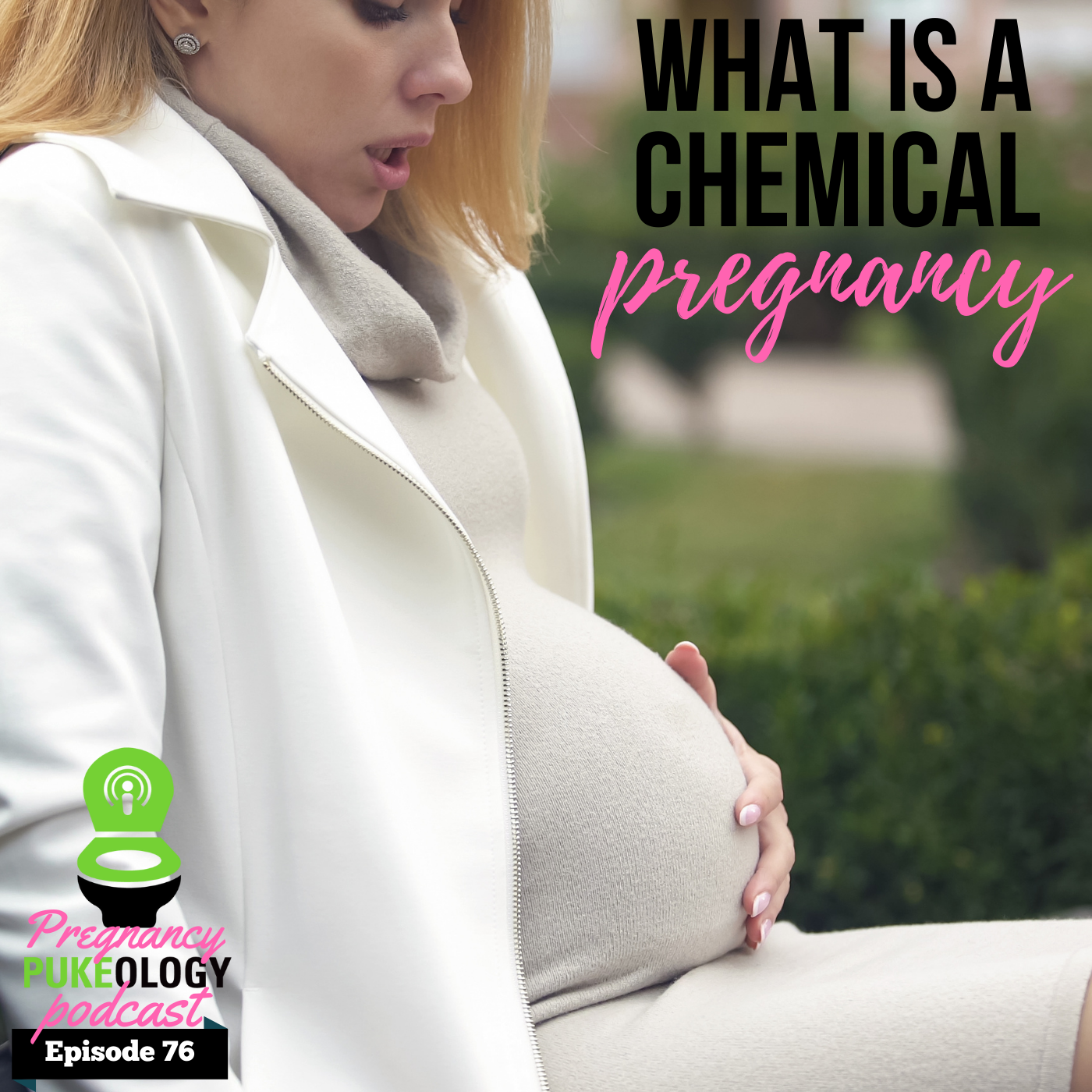
What is a Chemical Pregnancy?
Today you will learn the science behind what is a chemical pregnancy, what causes a chemical pregnancy, what happens to the baby during a chemical pregnancy, and does having one lower your chances of fertility. We will talk more about this in today’s Pregnancy Pukeology Podcast Episode 76: What is a Chemical Pregnancy.
Listen to "What Is A Chemical Pregnancy? Pregnant Podcast Pukeology Episode 76" on Spreaker.


What is Chemical Pregnancy?
When asked, most of the mothers will tell you they are familiar with, or at least they have heard about the term ‘miscarriage.’ But a few are aware of chemical pregnancy.
When a woman experiences pregnancy loss before the fetus is 20 weeks old, she has experienced a miscarriage. However, if the pregnancy occurs too early, it is referred to as chemical pregnancy. Read on to learn more about chemical pregnancy.
What is a chemical pregnancy?
A chemical pregnancy, also called biochemical pregnancy, is one in which miscarriage occurs very early in the first trimester, usually before five weeks of gestation.
It occurs just after implantation of the embryo and most often goes unnoticed as most signs and symptoms associated with pregnancy are absent.
However, there is adequate production of a pregnancy hormone called human chorionic hormone. This hormone can result in a positive HCG pregnancy test result when an early pregnancy test is performed. But an obstetric ultrasound scan usually shows negative results for pregnancy.
A chemical pregnancy is often confused with normal menstruation. Studies show about 8 to 33% of miscarriages occur as a result of chemical pregnancies.
What causes chemical pregnancy?
Many factors are thought to cause chemical pregnancies. Unfortunately, no exact cause has been identified yet.
Chemical pregnancies can happen if you have uterine abnormalities, for example, uterine irradiation, uterine fibroids, and scar tissues.
You can experience a biochemical pregnancy if you get infections early in pregnancy, for example, chlamydia and syphilis.
Systemic diseases can also cause early pregnancy losses, such as uncontrolled diabetes mellitus, thyroid disease, and blood dyscrasias.
In addition, having a low body mass index can increase your risk of having a chemical pregnancy.
Other factors that increase your chance of experiencing a chemical pregnancy include:
- Alcohol use and smoking
- Having problems with your period, particularly during the luteal phase resulting in hormonal abnormalities.
- Embryological causes such as severe chromosomal abnormalities.
- Having a positive history of chemical pregnancy.
- Advanced reproductive age, that is, over 35 years.
- Having diabetes mellitus.
- Having thyroid disease.
Having one or more of the risk factors above doesn’t mean you will always experience an early pregnancy loss. Your chances of getting pregnant and carrying your baby until term are still high, even if you had experienced a pregnancy loss before.

How can you tell you are having chemical pregnancy?
Chemical pregnancy often mimics normal menstruation, and usually, most women who experience chemical miscarriage don’t experience the symptom.
Some of the chemical pregnancy symptoms include:
- Having menstrual flow heavier than usual with or without clots, intense abdominal cramping, and pains compared to the usual menstrual cramps.
- Lack of common pregnancy symptoms such as nausea, morning vomiting, breast soreness.
- Late period
- An early positive HCG pregnancy test result that lasts for a few weeks before your period returns.
Human chorionic gonadotropin (HCG levels) in a chemical pregnancy
When you get pregnant, the cells that later develop into the placenta start to produce HCG hormone. As the pregnancy progress, the HCG hormone level progressively increases and can be detected in the urine.
In chemical pregnancy, this hormone fails to increase progressively. Instead, the HCG level remains low and later diminishes.
Can a chemical pregnancy affect my fertility?
Early pregnancy loss often doesn’t affect your fertility. Having conceived and having a positive pregnancy test means that you are likely to get pregnant again and carry your pregnancy to term.
Bottom Line
While chemical pregnancy may not need treatment, it is necessary to see a doctor. Your doctor will examine you and identify the risk factors that may be contributing to chemical miscarriage.


